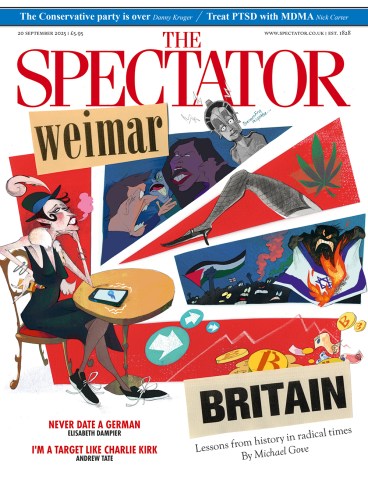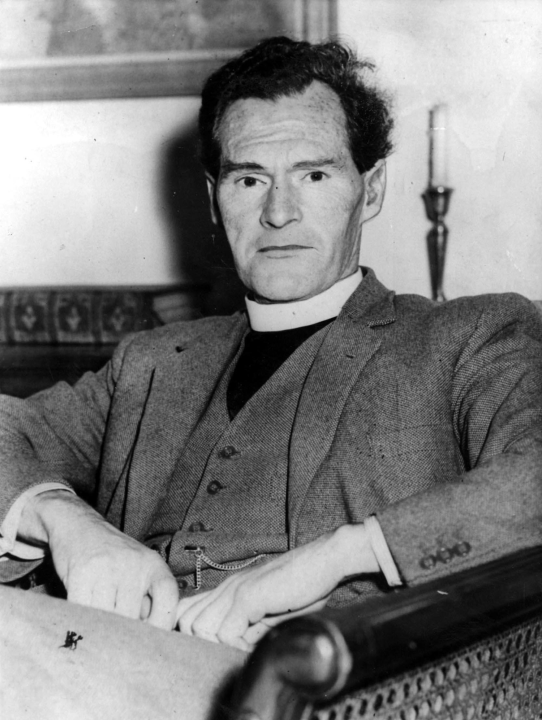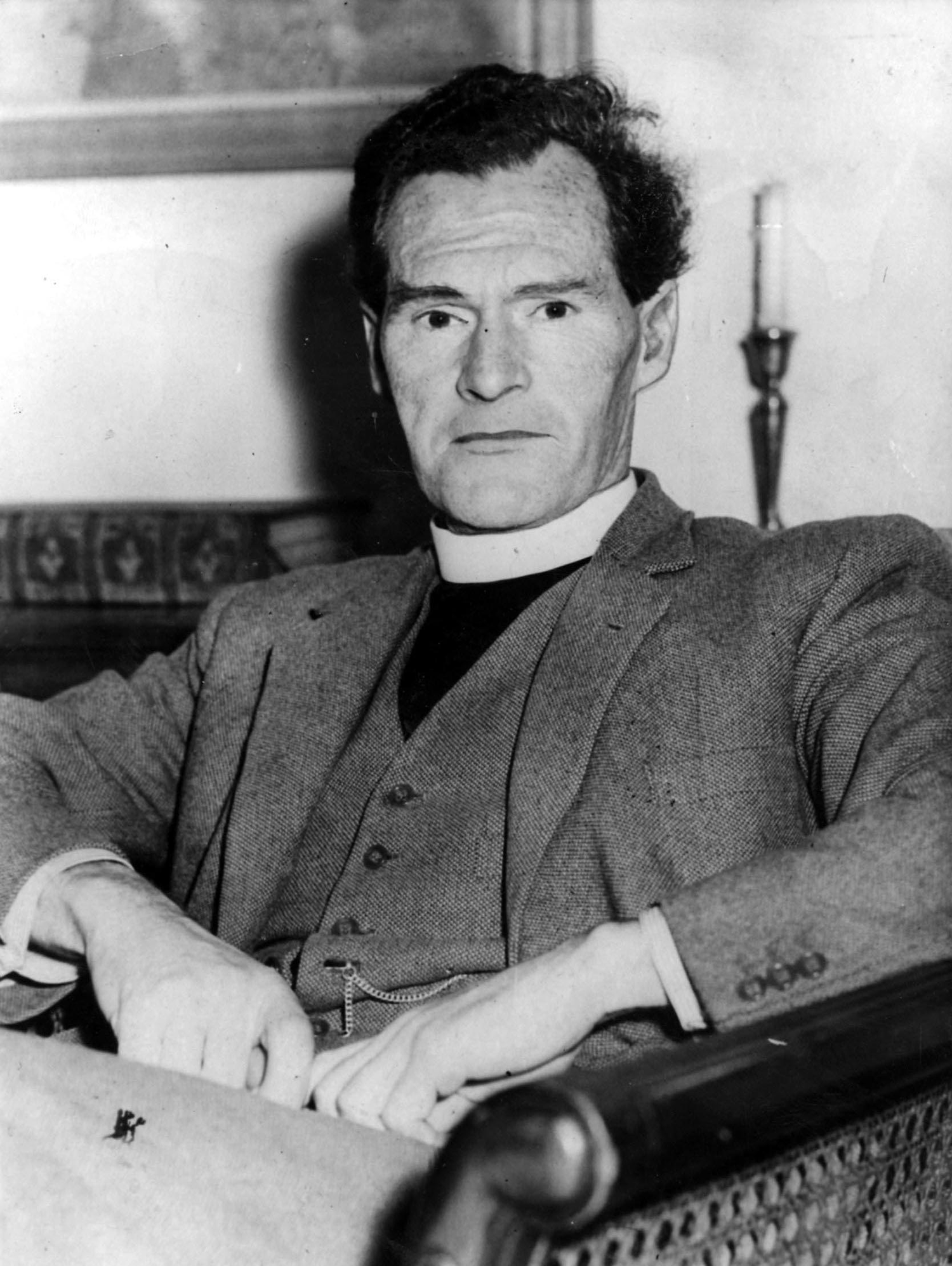
Love’s Moment is one of those quiet radio programmes you’re unlikely to have read about. It aired without fanfare at 4 p.m. on Tuesday, an understated yet engrossing one-off, half-hour documentary. It can now be found in the recesses of BBC iPlayer.
It opened with a compelling question: ‘What happens when two artists fall in love and marry, and as one’s reputation soars, the other’s is slowly forgotten?’ Narrator Gwyneth Lewis, former National Poet of Wales, might have been alluding to any artistic couple in history, but her subjects were R.S. Thomas and Mildred Eldridge.
Thomas was one of the most popular poets in Wales in the last century. He was an Anglican priest, a fervent Welsh nationalist and something of a misanthrope. Mildred (‘Elsi’) Eldridge was a Wimbledon-born, RCA-trained, prizewinning painter. She put on a solo exhibition at Beaux Arts, London, in 1937, and used the proceeds to buy herself an open-top Bentley.
They married in 1940 and moved from Denbighshire to rural Montgomeryshire, where Thomas was appointed rector of St Michael’s in Manafon. The rectory had a large garden with fruit trees and goats, and enough rooms for each to keep their own sleeping and working quarters. Their only son, Gwydion, remembered the absence of sentimentality and affection between them. They were, he said, ‘like the Ice King and Ice Maiden, but not un-fond of each other’.
Lewis befriended the late R.S. but never met Elsi. She found him to be ‘warm and charming’, but others interviewed for the programme attested to his sharpness: ‘There were definitely two sides to him.’ Quite the most remarkable quote came from R.S. himself following Elsi’s death in 1991. Asked whether he was deeply in love with her, he replied: ‘I don’t think I’m a very loving person.’
R.S., needless to say, did not emerge from this fine, atmospheric documentary as husband of the year. Lewis did a valiant job of resurrecting Elsi, whose career suffered as R.S. moved them further and further west in search of a Wales that he believed lay just beyond the horizon. In one of his poems, Thomas described his wife ‘at work/ always, mending the garment/ of our marriage’. Readings from Elsi’s unpublished diaries, obtained by Lewis, reveal no self-pity on her part, only a peculiar detachment.
Wales has not so far featured on the global circuit encompassed by Hotels with History. The new podcast from Intelligence Squared is co-hosted by actor Richard E. Grant and luxury brand consultant Jules Perowne. It’s not Travel Man, nor is it a Michael Portillo travelogue, but a preponderance of facts does elevate it to something like a spoken-word Blue Guide.
R.S., needless to say, did not emerge from this fine, atmospheric documentary as husband of the year
The presenters have the discipline to stick to the script they have been given. That script can grow dense in places, and might have benefitted from an edit by an author of narrative history, but better that it is this way round than dumbed-down. Grant and Perowne are certainly excellent at carrying the excitement they feel upon entering a particular hotel into a conversation recorded months later.
First up is Claridge’s and a foray into the history of its Mayfair surroundings. The original ‘May Fair’, which ran from 1686 to 1764, apparently featured fencers, bare-knuckle fights and rather brilliant-sounding semolina-eating competitions. It was shut down for ‘debauchery’ by the time the Grosvenor and other wealthy families had finished redeveloping the area. The original Claridge’s arrived at a similar time to Burlington Arcade in the first half of the 19th century and acquired a reputation for the grandeur of its guests.
Next, the amiable Grant checks into the Gritti Palace in Venice. The best part of the episode focuses on the life of its original owner. Born in 1455, Andrea Gritti began his career as a cereal merchant in Constantinople before being ensnared in a spot of espionage. Briefly imprisoned, he returned to Venice, where in 1523 he became the 77th Doge.
The palazzo, which served as his private residence, remained in the Gritti family, astonishingly, until the 19th century. It was acquired by Austrian owners, who catered increasingly to the tastes of the Grand Tourist. John Ruskin was said to have written his seminal The Stones of Venice as a guest there. The top floor is allegedly haunted by the benign ghost of a 19th-century baroness who never wanted to check out. She is perhaps the only person aside from our hosts granted a free stay.
Grant and Perowne will be travelling further across the world in coming episodes. Theirs is a series to delight deep pockets and high aspirations.








Comments